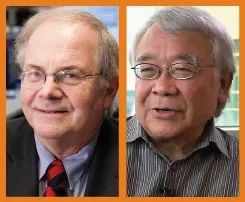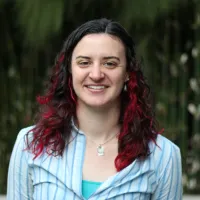
Is UCSF “Thinking Creatively About Postdocs?” A Report on the Roundtable Discussion
The much-publicized “Thinking Creatively about Postdocs: A roundtable discussion with Keith Yamamoto and Gregory Petsko” featured two well-respected scientists who have devoted time, energy and attention to addressing institutional problems affecting graduate and postdoctoral training, and both have been extremely vocal advocates of reforming scientific training at both the institutional and national level. However, the October 3rd event at Genentech Hall left many postdocs wondering if the school administration has a cohesive plan for improving postdoctoral training here at UCSF.
During the discussion, which was moderated by Vice Chancellor and Provost Jeff Bluestone, Yamamoto and Petsko both agreed that the excess of postdocs created by the doubling of the NIH budget, which stagnated in 2003, is a huge problem. “We are in an era of scarcity – the likes of which I have not seen in my scientific career,” said Petsko during the presentation. They both thought that at some indeterminate time in the distant future, we should have fewer postdocs and that we should incentivize graduate students to enter other career tracks when they get their PhDs.
“If we give graduate students and postdocs the right information, and in sufficient depth, they will choose other options,” said Yamamoto. He cited the success of GSICE (Graduate Student Internship for Career Exploration) in placing students in “alternative” career pathways, arguing that giving information alone would be sufficient to correct the current crisis situation.
Petsko, on the other hand, has a radical proposition – double postdoc salaries to halve the number of postdocs. This would give labs an economic incentive to hire fewer postdocs, and only hire the best postdocs available. He further admitted that in his own experience, he probably could have accomplished about the same science with fewer people.
Yamamoto disagrees with this idea, arguing that a postdoc should be a “training period” for scientists who want to run their own independent laboratories, and that if salaries were high enough people would choose to do a postdoc “as a career.” It is unclear why Yamamoto believes that being a postdoc is not already a career, as postdocs are highly trained specialists who do much of the actual research at UCSF.
At a surface level, it would appear that UCSF is taking the postdoc crisis seriously. If you ask Graduate Dean Elizabeth Watkins or other administrators, they will cite the recently released study on postdoc outcomes, and the piloting of the Motivating INformed Decisions (MIND) Program.
If you ask postdocs themselves, big questions still remain about whether or not UCSF is truly making large scale reforms to tackle what is, according to Petsko, “an urgent problem,” and these questions were not addressed during the roundtable. “It’s infuriating that at an event specifically billed to help postdocs, we weren’t included in the conversation. We want our voices to be heard, and this event didn’t convince me that we’re being taken seriously,” said Stephanie Vlachos, a postdoc entering her third year.
Certainly the people who work in the Office of Career and Professional Development, who have created and piloted all of the currently available programs and resources for professional development at UCSF, care about improving the postdoc experience. Dean Watkins publicly stated at an event where she unveiled recent UCSF postdoc outcomes that UCSF has “a real opportunity to be national leaders in thinking creatively about the postdoc experience and the best kind of co-curricular training and programming we can give in addition to research training.”
While there are clearly some important and well-respected scientists at UCSF highly invested in changing what it means to succeed in academia, from this event alone it is unclear that UCSF is truly in a position to profoundly restructure postdoctoral training. Allowing postdocs to participate in the conversation might be a good first step.



